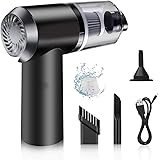In our fast-paced world filled with constant demands and pressures, taking care of our mental, emotional, and physical health often takes a backseat. However, prioritizing personal healing is crucial for overall well-being and longevity. A personalized healing program offers a holistic approach that addresses the mind, body, and spirit, aiming to restore balance and promote wellness. Here’s a comprehensive guide to creating and implementing your own personal healing program.
Understanding Personal Healing
Personal healing goes beyond treating symptoms; it involves understanding the root causes of ailments and imbalances. It encompasses acknowledging past traumas, current stressors, and lifestyle factors that impact health. Healing begins with self-awareness and acceptance, fostering a compassionate relationship with oneself.
Assessing Your Needs
The first step in developing a personal healing program is assessing your current state of health. This includes evaluating physical fitness, emotional stability, mental clarity, and spiritual connection. Keeping a journal or using assessment tools can help identify areas that need attention and improvement.
Setting Clear Goals
Establishing clear, achievable goals is essential for guiding your healing journey. Whether it’s reducing stress, improving sleep quality, managing chronic pain, or enhancing emotional resilience, articulate specific outcomes you wish to achieve. Break down larger goals into smaller, manageable steps to maintain motivation and track progress effectively.
Building a Support Network
Healing often thrives in a supportive environment. Surround yourself with individuals who uplift and encourage your well-being. This may include friends, family members, support groups, or healthcare professionals who specialize in complementary therapies. Seek out mentors or coaches who can provide guidance and accountability.
Holistic Approaches to Healing
Integrating holistic practices can significantly enhance your healing program. Consider incorporating:
Mindfulness and Meditation
Practices that cultivate present-moment awareness and promote mental clarity.
Nutrition and Diet
Adopting a balanced, whole-foods diet that supports physical health and vitality.
Exercise and Movement
Engaging in regular physical activity to improve cardiovascular health, flexibility, and mood.
Therapeutic Modalities
Such as acupuncture, massage therapy, or chiropractic care to address physical ailments and promote relaxation.
Creative Expression
Using art, music, or writing as therapeutic outlets for emotional healing and self-expression.
Implementing Daily Rituals
Consistency is key to effective healing. Establish daily rituals that nourish your mind, body, and spirit. This might include morning meditation, evening journaling, regular exercise routines, or a soothing bedtime ritual to promote restful sleep. These rituals anchor your healing journey and cultivate a sense of stability and routine.
Monitoring Progress and Adjusting
Healing is a dynamic process that requires ongoing assessment and adjustment. Regularly evaluate your progress towards your goals. Notice what practices or habits are yielding positive results and which ones may need refinement. Be open to adapting your healing program as needed to better align with your evolving needs and circumstances.
Cultivating Resilience and Self-Compassion
Healing is not linear and setbacks are a natural part of the journey. Cultivate resilience by practicing self-compassion and embracing setbacks as opportunities for growth. Celebrate your successes, no matter how small, and acknowledge the courage it takes to prioritize your well-being.
Seeking Professional Guidance
While self-care practices are beneficial, seeking professional guidance is important for comprehensive healing. Consult with healthcare providers, therapists, or holistic practitioners who can offer personalized guidance and treatments tailored to your specific needs. They can provide valuable insights, support, and therapeutic interventions to complement your healing program.
Embracing Sustainable Change
True healing extends beyond temporary fixes; it involves embracing sustainable lifestyle changes that support long-term well-being. This includes cultivating healthy relationships, managing stress effectively, prioritizing self-care, and fostering a positive mindset. By committing to ongoing self-improvement and personal growth, you empower yourself to live a fulfilling and balanced life.
Conclusion
A personal healing program is a journey of self-discovery, self-care, and transformation. By integrating holistic practices, setting clear goals, and nurturing a supportive environment, you can embark on a path towards greater health and vitality. Embrace the process with patience and persistence, knowing that each step forward brings you closer to a renewed sense of well-being and a more vibrant life.
Skylike 6 fridge storage boxes multipurpose containers for storage Space-saving Refrigerator Side Door Organizer for fridge kitchen Fruits, Vegetables Storage Containers- transparent
₹284.00 (as of 19 September, 2024 18:09 GMT +05:30 - More infoProduct prices and availability are accurate as of the date/time indicated and are subject to change. Any price and availability information displayed on [relevant Amazon Site(s), as applicable] at the time of purchase will apply to the purchase of this product.)Shalimar Premium Garbage Bags ( Lavender Fragrance ) Size 19 X 21 Inches (Medium) 120 Bags (4 rolls) Dustbin Bag/Trash Bag - Black Color
₹288.00 (as of 19 September, 2024 18:22 GMT +05:30 - More infoProduct prices and availability are accurate as of the date/time indicated and are subject to change. Any price and availability information displayed on [relevant Amazon Site(s), as applicable] at the time of purchase will apply to the purchase of this product.)Ezee Black Garbage Bags for Dustbin | 90 Pcs | Medium 19 X 21 Inches | 30 Pcs x Pack of 3
₹159.00 (as of 19 September, 2024 18:22 GMT +05:30 - More infoProduct prices and availability are accurate as of the date/time indicated and are subject to change. Any price and availability information displayed on [relevant Amazon Site(s), as applicable] at the time of purchase will apply to the purchase of this product.)SHAYONAM 3IN1 Portable Car Vacuum Cleaner with Blower | USB Rechargeable Wireless Handheld Car Vacuum Cleaner Traveling, Camping Reusable,Portable,Rechargeable (Vacuum with Blower)(Multy)
₹699.00 (as of 19 September, 2024 18:09 GMT +05:30 - More infoProduct prices and availability are accurate as of the date/time indicated and are subject to change. Any price and availability information displayed on [relevant Amazon Site(s), as applicable] at the time of purchase will apply to the purchase of this product.)SHAYONAM USB Plasma Rechargeable Electric Gas Lighter for Kitchen, Pooja Room, Candles, BBQ, Multi Purpose - 360 Degree Flexible & Windproof (Multicolor)
₹299.00 (as of 19 September, 2024 18:09 GMT +05:30 - More infoProduct prices and availability are accurate as of the date/time indicated and are subject to change. Any price and availability information displayed on [relevant Amazon Site(s), as applicable] at the time of purchase will apply to the purchase of this product.)Discover more from The General Post
Subscribe to get the latest posts sent to your email.





